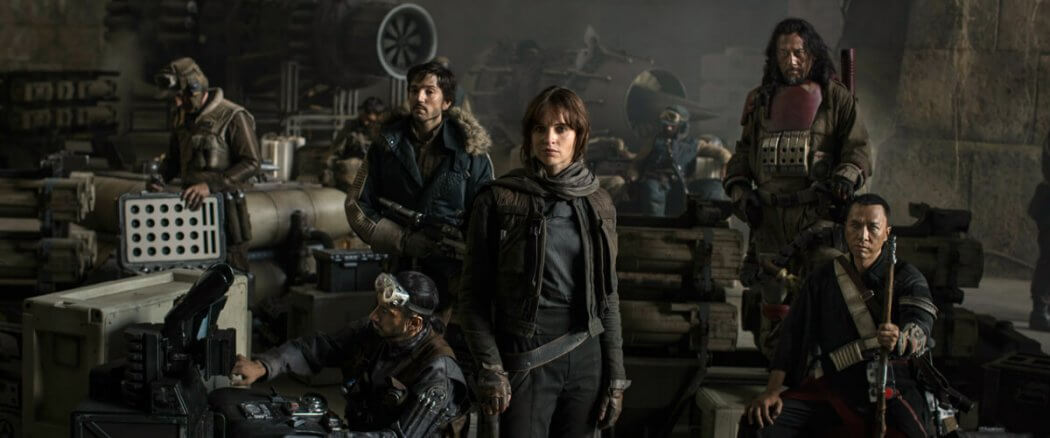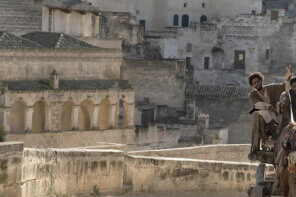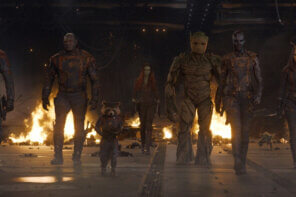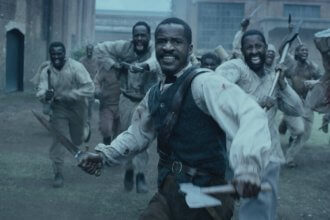“Rebellions are built on hope.” — Jyn Erso
Sitting in the theater on a snowy December night watching Rogue One, I had to come to terms with a few realities of life. The first is that I am a complete fanboy of anything Star Wars. The second is that I love rebellions. So if you are looking for an objective review of this movie, this is not the review you are looking for…move along.
Trying, as hard as it may be, to give this movie an “objective review” I’d say it is just slightly better than mediocre. The characters are not developed deeply, the plot is rushed, the situation unrealistic, and, as with any Star Wars movie, there are still a thousand questions to be answered.
But, I loved it.
Finally, the drone we have been waiting for. Yes, an incredible female heroin. And was that Darth Vader’s castle? What!
War Over Characters
With most prequels, the development of the characters is important because those characters are present throughout the entire series. But here, the main characters in Rogue One do not appear in any other of the Star Wars films. So character development is not essential — which deeply weakens the film’s impact.
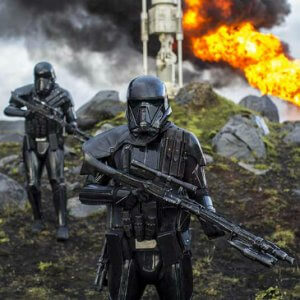 Unlike the other Star Wars films, Rogue One is not a kids movie — rather, it’s a gritty and somber war movie about the first major battle between a totalitarian evil empire and a scrappy, overmatched rebellion trying with all its might to somehow stop a massive weapon from being deployed. Rogue One tries diligently to tie itself to the realism of the situation and consequently manages to maintain the tension between despair and hope throughout. Overall, it is dark but it is precisely this darkness that gives it its life.
Unlike the other Star Wars films, Rogue One is not a kids movie — rather, it’s a gritty and somber war movie about the first major battle between a totalitarian evil empire and a scrappy, overmatched rebellion trying with all its might to somehow stop a massive weapon from being deployed. Rogue One tries diligently to tie itself to the realism of the situation and consequently manages to maintain the tension between despair and hope throughout. Overall, it is dark but it is precisely this darkness that gives it its life.
Despite the lack of needed character development, the beauty of the characters is found in their flaws. Jyn and her band of misfits are anything but righteous, not like disciplined Jedi Knights who have overcome their emotions but rather angry rebels trying to navigate the horrors of war and the pain of their past.
The Dark Side
One of the problems with the original Star Wars trilogy is that darkness of “the dark side” is mostly veiled, its weight is never really unleashed upon the viewer. The ruthlessness of the Empire and the cost of rebellion are never truly exposed — always hidden by the hope of the Jedi Luke Skywalker and his ghost friend Obi-Wan. Finally, in Rogue One we begin to get a glimpse of the darkness that is overtaking the universe with the rise of the Emperor’s Empire.
Enslaved citizens working in concentration camps, military patrols roaming busy city streets, storm troopers stop and frisk policy, the Empire’s colonial occupation and harvesting of mineral rich cities, the destruction of ancient holy sites, forced enlistment of brilliant engineers, a “peace through terror” policy creating a drone space super-weapon that can wipe out cities and planets as a means to elicit surrender and loyalty — all held together by the shady stealth of a powerful religious mythological force that is capable of pragmatically controlling the universe under the guise of “resistance is futile.”
Yes, this is dark. The Empire has it all: military supremacy, economic monopoly, natural resource domination, and religious manipulation.
And yet against this dominant force, against this complete and total control of the world — a rebellion is born.
The Rogue One
It is quite fitting that Rogue One was released so close to Christmas as the parallels between the Christmas Story and the Star Wars story seem so similar — minus the violence of course.
Jesus was born into a time where the Roman Empire was the most dominant force on the planet and seemed unstoppable. It captured and colonialized an ever expanding territory under the Caesars — using the natural resources of the newly acquired lands to fund its military efforts, enlisting new local soldiers, and taxing the people at excessive rates to fund Rome’s lavish lifestyles.
The Romans destroyed cities, crucified rebels along the public streets as a deterrent, and maintained strict police control to ensure total domination of body and spirit. The people of Israel were oppressed beyond compare. They were longing for a new hope, a new future, a liberation from their own evil empire. And upon the announcement of Jesus’ coming birth the first “rogue one,” Mary, responded with this poem of rebellion saying:
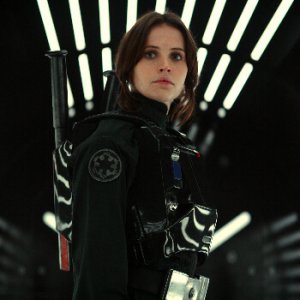 “…the Mighty One has done great things for me — holy is his name. His mercy extends to those who fear him, from generation to generation. He has performed mighty deeds with his arm; he has scattered those who are proud in their inmost thoughts. He has brought down rulers from their thrones but has lifted up the humble. He has filled the hungry with good things but has sent the rich away empty. He has helped his servant Israel, remembering to be merciful to Abraham and his descendants forever, just as he promised our ancestors.”
“…the Mighty One has done great things for me — holy is his name. His mercy extends to those who fear him, from generation to generation. He has performed mighty deeds with his arm; he has scattered those who are proud in their inmost thoughts. He has brought down rulers from their thrones but has lifted up the humble. He has filled the hungry with good things but has sent the rich away empty. He has helped his servant Israel, remembering to be merciful to Abraham and his descendants forever, just as he promised our ancestors.”
Mary is sounding the whisper of rebellion because the birth of the Savior has been announced. Nothing will be the same from this point forward. The future is being altered. There is hope!
Although Rogue One is flawed at many points — it tries to balance the reality of despair in the face of an overwhelming enemy with the spark of hope birthed within us all. It doesn’t paint a rosy picture of what happens to those who oppose the Empire — but neither does Christianity.
Jesus was executed as an enemy of the empire. As were many of his disciples. Death is often the cost of a rebellion — as Rogue One reminds us. But finally understanding the cost now gives the original Star Wars trilogy a deeper meaning — and makes it all more human.
Today, Rogue One may be a sober reminder of hope to all of us as Christians in the Western world. Have we become too cozy with our own empire who dominates the world, captures its resources and builds drones in the sky to “establish peace through violence”? Yes, it is comfortable to live in an empire, but at what cost? Too often Christianity has been co-opted and used as a justification of the state’s power and deployed to build obedience within those lands living under colonial control.
Is Mary’s poem of rebellion still our rallying cry or have we “evolved” and found ourselves more accommodating to the empire because it offers us the comfort we all crave?
The Non-Violent Revolution
Unlink Rogue One or other rebellions, Jesus’ movement is not a movement of violence where we will win by using weapons or explosives — rather, the rebellion of Christianity is a rebellion of complete and absurd peace fought through the non-violent revolution of love and charity…making it the most radical rebellion of all.
Yes, the odds are against us, and the chances of victory seem absurd — but we too have a “force.” And it is our “force” — the power of the Spirit — that guides all of life and must be the reservoir of life, love, and faith that we constantly seek strength from.
Yes Jyn, all rebellions are built on hope — even ours.

